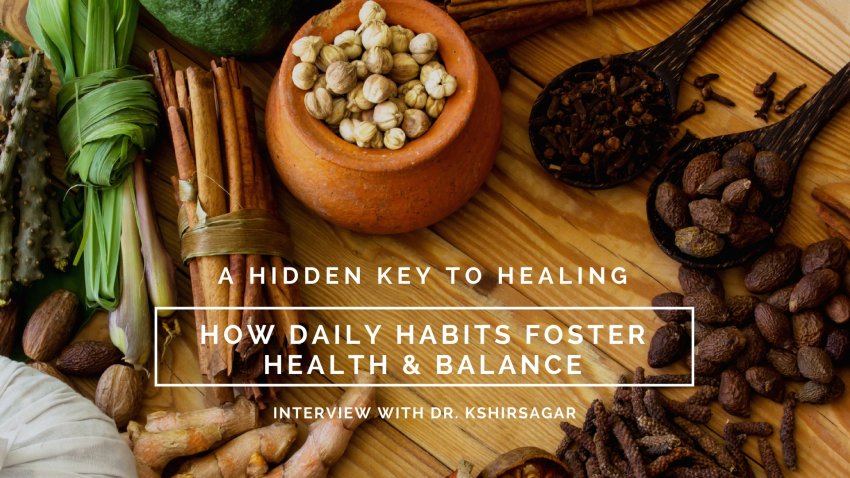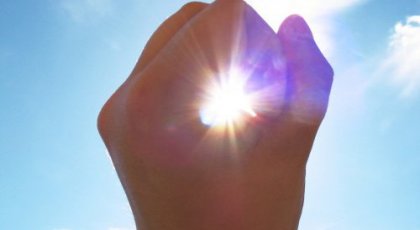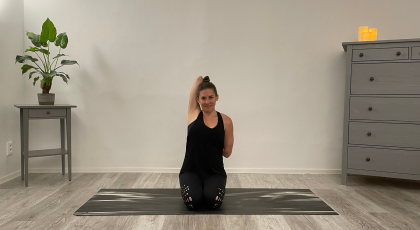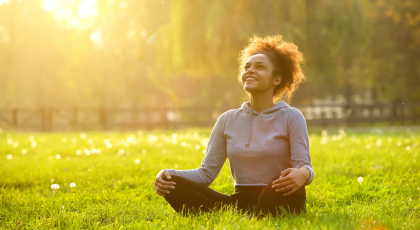View basket (0 items $0.00)
Error message
- Notice: unserialize(): Error at offset 5 of 154 bytes in variable_initialize() (line 1202 of /home/dh_6hcdc2/yogau.online/docroot/includes/bootstrap.inc).
- The file could not be created.
- The file could not be created.

A Hidden Key to Healing: The Power of Daily Habits to Foster Health and Balance
Is Ayurveda the original form of lifestyle medicine? In this interview, renowned Ayurvedic physician Dr. Suhas Kshirsagar talks about why our daily habits have tremendous healing power, and how we can harness these by becoming more conscious of our daily routine.
YogaUOnline: The concept of lifestyle medicine is becoming increasingly important in the Western framework. However, it has been a major focus of Ayurvedic medicine for millennia, is that correct?
Dr. Suhas Kshirsagar: I believe Ayurveda is the original lifestyle medicine that is known to humanity. Many people think that Ayurveda is only about diet or food supplement or getting massages, but I think the biggest component of Ayurveda is lifestyle medicine.
There’s an ancient saying in Ayurveda that says, “If you follow the rules of diet and behavior, there is no need for medicine. But if you don’t follow the rules of diet and behavior, there is no use of medicine.”
I think this is something that our society is painfully realizing. The latest research states that approximately eighty percent of all chronic diseases are caused by lifestyle and can be prevented or even reversed by simple changes in diet and lifestyle.
I believe we have to go back to the individual health for each person, and how well they participate in their own health and well-being. One of the things that I discuss in my upcoming book, “Change Your Schedule, Change Your Life,” is how our lifestyle has become too busy. Increasingly, we are becoming more and more disconnected from our bodily functions. We are not aware how hungry we feel or whether we are thirsty or whether we are feeling tired. We are so disconnected from our body that our schedule overtakes all the bodily functions.
YogaUOnline: In that new book, Change Your Schedule, Change Your Life, you talk about the power of ‘clock genes’ to improve our health and wellbeing. What exactly are clock genes and why are they so important?
Dr. Suhas Kshirsagar: “Clock genes” are a very important concept from the new field of chronobiology. (Chrono means time and biology means the biological function of the cells, tissues, and the physiological functions of the organ systems.) It was once believed that we only had a master clock in our brain, which is called Suprachiasmatic Nucleus (SCN). The SCN is deeply embedded in the hypothalamus, and is considered to be the “brain’s brain.” It gets activated every time we are exposed to daylight, sun and evening darkness; that’s what resets certain physiological functioning.
This idea that chronobiological function is limited to the SCN, however, is an old school of thought. The newest discovery and this year’s Nobel Prize went to three American Physiologists who actually discovered the cycling of the clock genes which activate many functions related with the fat metabolism and carbohydrate metabolism. The cycling of clock genes is also related to the regulation of various chronic diseases because of how it turns on and turns off certain important functions can turn on specific disease-causing genes.
What I’m trying to highlight in the book is that, if we are doing some wrong things at the wrong times of the day, then it actually affects the various clocks that we have in the body. With the latest discovery, we now know that the clocks are embedded in our genes and we need to respect those with everything that we do. We need to align all of our activities that we’re doing with the twenty-four-hour circadian rhythms in our body.
YogaUOnline: What are some examples of aligning our activities with the clocks?
Dr. Suhas Kshirsagar: A good example is exercising or eating at ten o’clock at night. If you do the right thing at the wrong time, it is creating a lot of havoc on the system itself. Even though you are eating clean, healthy, organic food at ten o’clock at night, it is still going to disrupt the physiological function in the body. It is not what you do, but when you do it that’s more important. It’s not what you eat, it’s when you eat that’s more important. It’s not how much sleep you get, it’s exactly when you sleep that’s more important.
YogaUOnline: What are some of the early signs that people should be alert to that their body is becoming out of balance?
Dr. Suhas Kshirsagar: Being out of balance creates the feeling of low energy, and despite feeling tired most of time, you have difficulty in falling asleep and staying asleep because your mind is still very active and your body is not tired enough. Other signs are irregularities in your digestive functions, feeling gassy and bloated most of the time, and shifting moods. You become snappy and grumpy and irritable. You become depressed without a reason, and this is likely going to create a mental fog where your cognitive function is slowly fading away and your attention span is decreasing.
When I ask these questions, many people nod their head and say yes, but they’re not sick enough to have one disease diagnosis or to go and get it fixed. However, resetting their circadian rhythms can dramatically improve their health. I have worked with thousands of people, and it resets everything.
YogaUOnline: When you help clients reset, how long does it take to get a result? What are some of the things that help them reset?
Dr. Suhas Kshirsagar: It takes close to four to six weeks to reset the circadian rhythms. There are several very important things to do. I tell clients to stay away from watching television or any blue light entertainment at least an hour or so before going to bed and one hour after waking up in the morning. Whether it’s sending you good news, or bad, looking at your phone is going to negatively affect your sleep. It affects the melatonin released in the evening and it affects the cortisol secretions in the morning because cortisol peaks at that time when you wake up, until around eight o’clock in the morning.
Another key component to resetting is eating with the sunlight. Have a lighter breakfast, lunch as the main meal of the day, and a lighter dinner before seven o’clock in the evening. This way you have three full hours to digest your meal before you go to sleep.
A third tenet is early morning exercise. When you wake up in the morning, it’s the Kapha time of day between six and ten. If you do some vigorous physical movement and exercise, then you are ready for a lighter breakfast and you’re wide awake when you show up for work without needing large doses of caffeine. By the end of the day, and you will be pleasantly tired and able to fall asleep easily.
YogaUOnline: We are very excited because you will be offering a course on YogaU on Ayurvedic Tools for Self Care - simple home remedies to regulate, and take greater control of our health and well-being. Tell us about the course and what you will be covering.
Dr. Suhas Kshirsagar: The course will give practical tools about how to identify your body type and how to reset your schedule to be most beneficial--selecting the right kind of physical movement, exercise and foods that balance your body type itself. We’ll be talking about sleep and diet. I will share different qualities of foods and the timings of eating.
There’s some travel hygiene I will share about what you can do when taking flights and changing time zones. We’ll be talking about emotional ups and downs and behavior because changes in your circadian rhythms and routines affect you at an emotional level--feeling anxious, depressed, more quick to anger, and creating more inflammatory responses in the body.
Learning to allow your body to heal itself is key, because when you’re sleeping in the night, that’s the best time for the body to repair and heal itself. Sleep is one of the most potent anti-inflammatory activities that you will ever do. It’s a reset button. That’s one of the many valuable tools that we’ll be discussing which are very self-empowering. Self-empowering is the key word because you’re doing something for yourself, being in control and mindful about your own physical health and well-being.
Dr. Kshirsagar is a prominent Ayurvedic physician in the US as well as a Medical Astrologer and Vedic Counselor. He is a featured presenter at NAMA and ACVA, and the author of several books on Ayurveda.
Featured Courses








